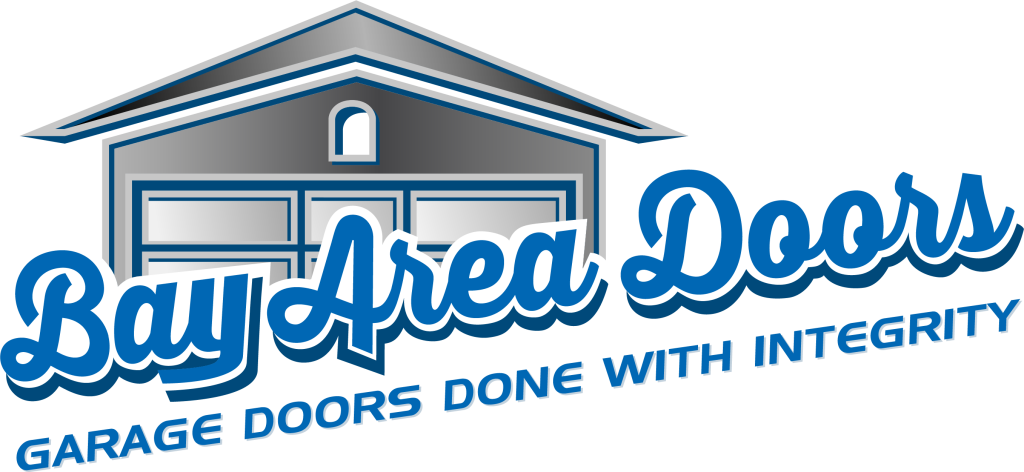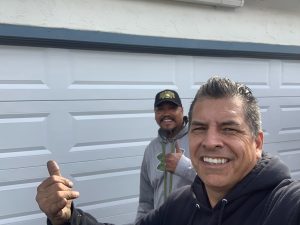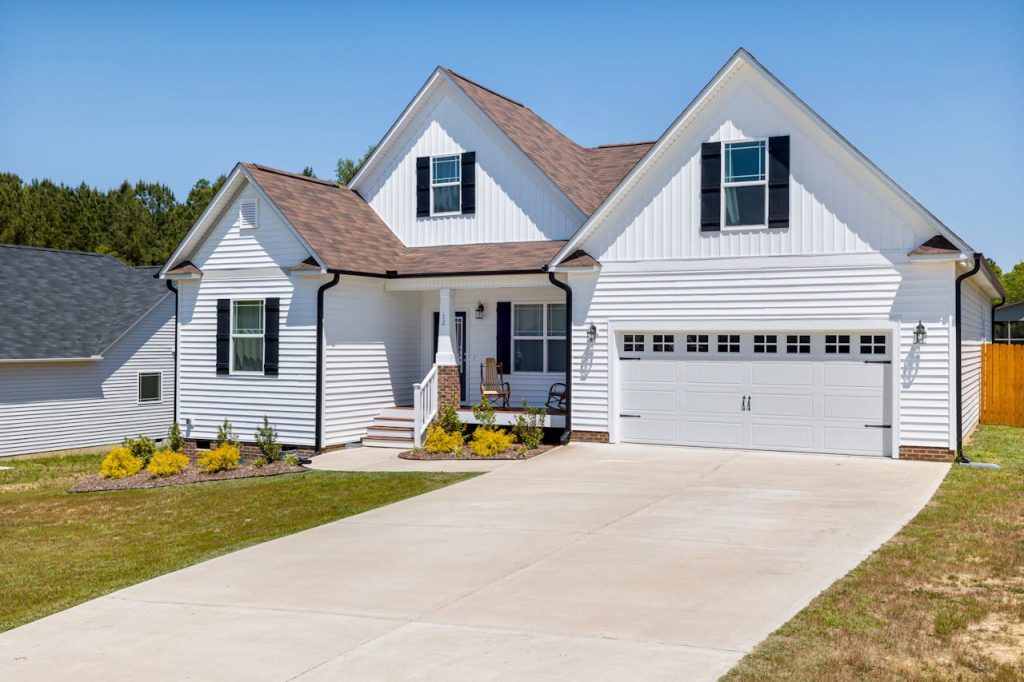Key Takeaways
- Keeping an ear out for your garage door’s noises can assist in diagnosing problems, such as a lack of lubrication, loose hardware, or worn parts, and facilitate targeted maintenance that staves off further complications.
- It’s important to regularly inspect and maintain the rollers, tracks, hinges, springs, and opener to keep your garage door operating quietly and smoothly and to avoid sudden failures.
- By switching to premium nylon rollers, belt-drive opener, and installing vibration isolators, you can reduce noise, improve performance, and increase the longevity of your system.
- There are environmental factors at play, such as weather conditions and garage acoustics, so for best results, tackle insulation, weather stripping, and sound-absorbing materials.
- Springs and cables are not something you should be attempting DIY repair on; it’s not safe. Professional intervention keeps you safe and your garage door working.
- Keeping a log of strange noises and conducting regular inspections allows technicians to quickly identify and fix problems, enabling sustainable, dependable performance for customers anywhere in the world.
Noisy garage door repair means tackling the screeches, squeaks, and clanks that happen when your garage door opens or closes. It’s a common issue for many homeowners, usually pointing to problems like worn-out rollers, loose hardware, or dry hinges. Some sounds creep in over time, while others show up suddenly—but either way, they’re warning signs. A quiet door isn’t just about comfort; it’s a sign your system is working smoothly.
Simple fixes like lubricating moving parts, tightening bolts, or swapping out old rollers can often solve the problem. If the noise continues, it might be time to call in a pro to check the tracks or springs. In the rest of this blog, we’ll break down the most common causes and walk you through easy ways to bring back the silence.
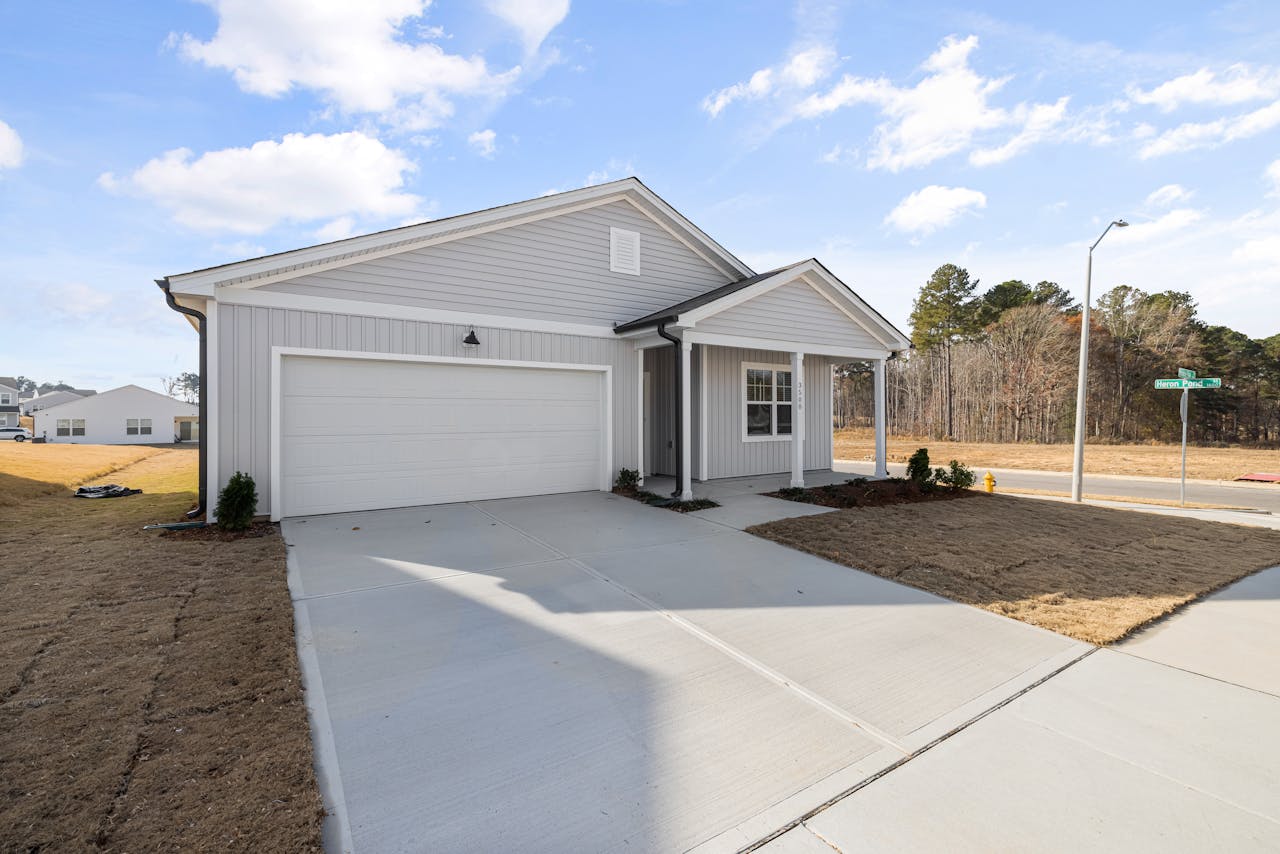
What Is Your Garage Door Telling You?
A noisy garage door is not merely an annoyance. It’s frequently an early alert to mechanical strain. By tuning in, you’ll catch the warning signs of distress before they become expensive repairs or safety hazards. Typical noises encountered are grinding, squeaking, popping, and rattling–all with their cause and repairs.
Grinding Noises
Grinding noises are typically an indication of rust on metal components or debris caught in the tracks. If you hear metal scraping, inspect rollers, hinges and tracks for buildup or corrosion. Consolidate any nuts and bolts along the door and its frame, as loose fasteners contribute to the grinding. Give your garage door a bit of TLC — use a silicone spray or white lithium grease twice a year on steel or nylon rollers. If the sound persists after lubrication, check the rollers and hinges for wear—replace as necessary. Plastic rollers wear out quicker, requiring replacements every two years or earlier if cracks are visible.
Squeaking Sounds
A squeaky garage door is usually the result of friction. Grab a nice lube and turn that racket into silence. Search for grime or buildup on rollers and tracks; these impede movement and cause screeches. If the door is unbalanced or out of alignment, it’ll create additional friction. Inspect the tracks and make adjustments as necessary. Periodic inspections and lubrication help catch issues early and keep squeaks at bay, extending the door’s life.
Popping or Banging
Popping or banging sounds could indicate loose hardware or misaligned tracks. Inspect and tighten all bolts, nuts, and brackets that hold the door. If tracks are bent or out of line, the door can bang during opening or closing. The opener chain must be tight, as a loose chain will slap and create noise. Install any damaged or worn parts immediately – don’t overlook these noises, as they can result in more extensive damage or even safety hazards, with severe injuries occurring annually from malfunctioning garage doors.
Rattling Vibrations
Rattling usually indicates loose hardware. Tighten all bolts and screws holding the door and opener to reduce vibration. Placing rubber anti-vibration pads underneath the opener mutes sounds. Declutter tracks – debris can cause additional shaking. Periodic inspections and servicing are your best weapon for an easy, silent, secure operation.
Where Is the Noise Coming From?
Garage doors can sometimes sound louder than they are because those big hollow panels act like a speaker. To repair the noise, you have to locate the source. The usual suspects are the rollers, tracks, hinges, springs, and opener. Inspecting these components for wear or damage prevents the noises. Early inspections and detailed notes regarding the nature and timing of sounds assist a professional in repairing the damage more quickly.
1. The Rollers
One of the biggest culprits for that noise is worn rollers. If you hear squeaks or grinding, inspect the rollers for flat spots, cracks, or missing bearings. Nylon rollers perform superiorly than steel in many cases, as they reduce noise.
Rollers with aged or dry bearings will begin to screech or rattle. If unattended, they can even cause the door to slide off its track. Just clean the bearings and drop in a silicone-based lube to keep things smooth. Misaligned rollers can rub against the track, banging or screeching. Tighten up the roller brackets to ensure there is no play.
2. The Tracks
Tracks collect dirt and debris, grinding to their noise. Wiping the tracks frequently with a dry cloth is helpful. If the track is bent or out of line, the roller can’t move properly, and the noise escalates. Use a level to verify misalignment and carefully bend the track back if necessary.
Lube the tracks lightly with a garage door spray. If tracks are deeply dented or rusty, replace them. Worn-out tracks can continue to squeal despite other fixes.
3. The Hinges
Hinges can squeak or rattle if they wear out or rust. Grease the pins with light oil. Swap out any hinge that appears cracked or rusty. Similarly, loose screws in the hinge can shake the door and squeak. Secure them hand-tight. Nylon hinges can slice noise even more, particularly on wide doors vulnerable to sagging.
4. The Springs
Torsion springs can make a loud pop when they’re dry. Keep things quiet by spraying them with a dedicated garage door spring lubricant. Keep your eyes open for indications of wear, like gaps or rust. Just let a pro change springs, since they carry so much power. Worn springs are another common cause of banging noises, frequently signifying that the door is unbalanced.
5. The Opener
Loose opener chains thump and clatter. Tighten ’em for less noise. Lube the opener rail and chain every half a year. Just make certain the opener is solidly fastened to the ceiling to prevent vibrations. Worn gears or belts in the opener itself will require replacement if noise persists.
Beyond the Obvious Mechanical Issues
Garage door noise isn’t always broken springs or loose chains! Other considerations, such as the door material, the garage’s acoustic properties or even the weather conditions. Looking beyond the obvious moving parts allows you to discover permanent solutions and keep your garage space peaceful and inviting.
Door Material
The door’s material defines how noisy it is during regular usage. Metal doors, which are common in many homes, are robust but reflect every thump. Thin steel panels bang more, particularly if the door is not insulated. Over time, metal-on-metal contact from hinges and rollers — particularly if those rollers are worn or plastic — amplifies squeaks and shakes.
Just like with the windows, switching to insulated or composite doors keeps noise contained. In addition to the obvious mechanical problems, these doors rely on layers of foam or synthetic materials to stop sounds from propagating. They assist with temperature regulation, too. Wood doors, though heavier, tend to better dampen sound than thin metal but require more care to prevent warping or swelling from moisture. When selecting new doors or components, seek out materials that are proven to soften sound, such as nylon rollers or insulated panels.
Garage Acoustics
Garage audio reverberates off bare floors and hard walls, amplifying every sound. Garages with lots of open space or concrete floors are echo chambers. If you add rubber mats or wall panels, or ceiling baffles, it helps absorb sound and keep it from bouncing around.
Where you install the garage door opener also affects how much noise it transmits. If it sits near a wall, vibrations can travel through the structure and cause the entire room to sound louder. Try relocating the opener or placing rubber pads underneath. Hang tools or storage along walls to disrupt sound waves.
Weather Impact
- Dry, cold air causes door panels to contract, pop, or crack.
- High humidity swells wood or rubber seals, producing additional friction.
- Seasonal shifts may misalign tracks, leading to scraping sounds.
- Dust and debris accumulate in dry weather, adding grinding.
- In hot or wet climates, doors require new grease more frequently.
Don’t forget to check seals and weather stripping regularly. At the very least, fix or replace cracked or worn pieces to keep wind and rain out and limit noise. Get ready for the changing weather by clearing your tracks and adding lubricant to make sure everything glides smoothly.
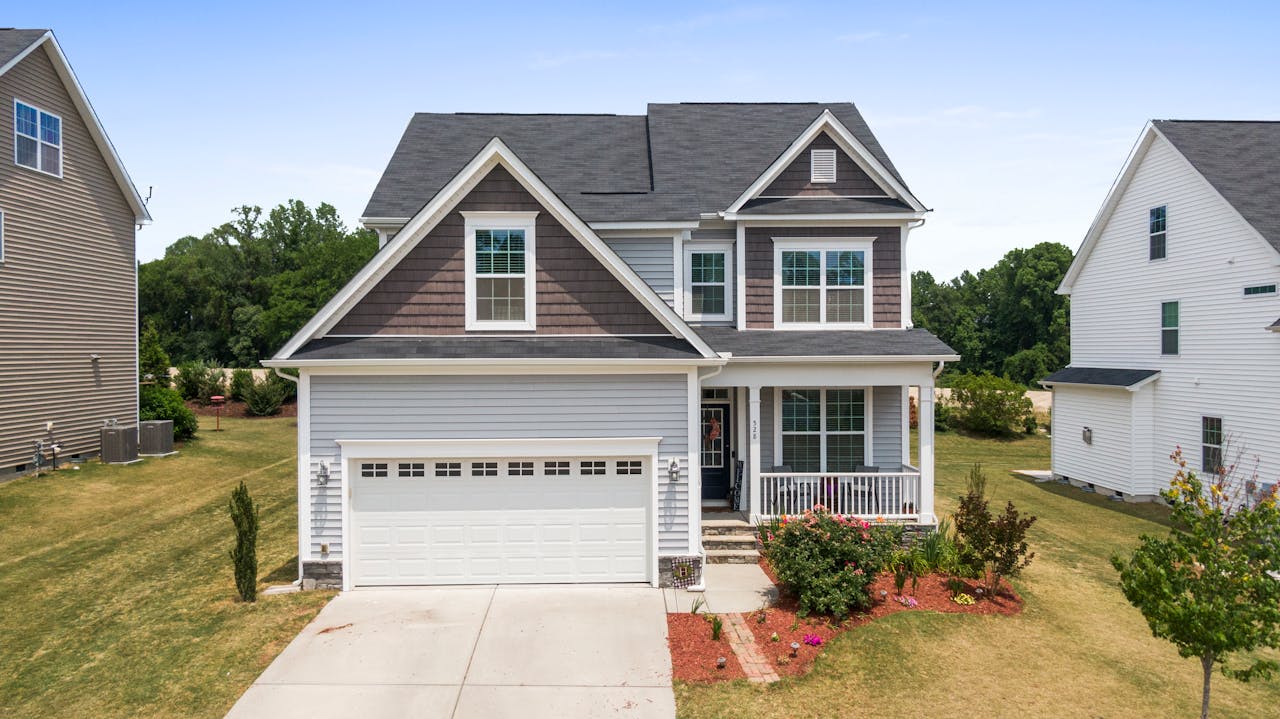
Upgrade for Lasting Silence
Reducing garage door noise isn’t just a maintenance chore—it’s a comfort and longevity upgrade. Investing in the right improvements can significantly cut down on operational noise and extend your system’s lifespan. Here’s how popular upgrades compare:
Upgrade Option | Features | Pros | Cons | Price Range (USD) |
Nylon Rollers | Durable, non-metal construction with ball bearings | Extremely quiet, low-maintenance, rust-resistant | Slightly more expensive than steel; may not fit older doors without modification | $20–$70 (per set) |
Belt-Drive Openers | Uses a reinforced rubber or polyurethane belt | Ultra-quiet, minimal vibration, ideal for attached garages | More expensive than chain or screw drive; belt may wear over time | $250–$500 (installed) |
Vibration Isolators | Rubber or neoprene mounts for the motor unit | Easy retrofit, dampens vibrations transmitted to the framing | Can wear down or harden with age; minor impact alone | $15–$40 (per set) |
Silicone-Based Lubricant | Protects against friction and corrosion on moving parts | Inexpensive, simple to apply, improves part lifespan | Needs reapplication every 3–6 months for effectiveness | $7–$20 (per can) |
Tightening Hardware | Retightening bolts, brackets, hinges, and tracks | Reduces rattling, prolongs hardware life, boosts safety | Requires periodic attention; doesn’t solve all noise issues | Negligible (DIY) |
Nylon Rollers
Quieter garage doors usually begin with the rollers. Metal rollers screech and grate after a while. Nylon rollers, on the other hand, glide silently and help whittle down noise immediately.
They wear slower, require less oil, and don’t rust like metal. That’s less work for you and a door that keeps going. Choose nylon rollers designed for your door’s weight and track size to prevent fitment problems.
Dammit, even nylon rollers fall apart. Review them every six months. Swap out any with cracks, chips, or flat spots to keep it rolling silently.
Belt-Drive Openers
Chain-drive openers are powerful, yet noisy. Belt-drive models replace that chain with a rubber belt. You receive a significantly quieter tone, perfect for homes with living spaces over the garage.
Top brands such as Chamberlain and LiftMaster have quiet models. When installed properly, belt drives tend to last longer with less downtime. A professional install is optimal. It keeps all the gears turning and helps run smoothly.
For added silence, seek openers with soft start/stop functions. These decelerate the door as it opens or closes, further reducing sound.
Vibration Isolators
Openers deliver tremors to both the ceiling and the walls. Rubber pads, known as vibration isolators, absorb these vibrations. This prevents noise from reverberating throughout the house.
Put isolators at each mounting point between the opener and rafters. Inspect pads for cracking or thinning annually. Pads play nicely with other sound solutions such as nylon rollers and silicone oil.
You could use foam strips or rubber washers under the opener’s feet. This provides an additional fold of noise insolation.
When to Call for Professional Repair
If your garage door is making noise, it may be an indication of a more serious underlying issue. Knowing the indicators of major faults, from springs to cables and electrical systems, keeps doors secure and functioning. Loud creaks, grinding, or sluggish remote response frequently indicate you need to call in the pros.
Broken Springs
Broken springs are among the most hazardous garage door defects. Most doors have one or two torsion springs that counterbalance the weight, and these springs weaken with age, typically requiring replacement after approximately 9-10 years. A broken spring can make the door fall with force, a real risk for injuries. Attempting to repair or replace a spring on your own is hazardous due to the fact that high tension can result in the spring snapping. Always have a technician check and replace springs. They’re the ones with the right skills and tools. Maintaining spring tension correctly is essential for safe and smooth functioning.
Risk | Necessary Action |
Sudden door drop | Schedule immediate professional repair |
Injury from tension | Never attempt DIY replacements |
The door won’t open | Call for expert assessment |
Damaged Cables
Check for frayed or worn cables on either side of your garage door. Frayed cables may prevent the door from opening or closing properly and can cause unexpected door drops, which produce actual safety hazards for users and can even harm the door’s panels. If you notice cable wear, don’t fix it yourself—call a tech who can safely replace and adjust the cables. Routine, vigilant inspection for cable damage averts more serious calamities and maintains the door’s smooth operation.
Unbalanced Door
If your door rides lopsided, sags to one side, or screeches, it may be unbalanced. An unbalanced door makes its components wear faster, be noisier, and can eventually warp or bend panels. Test balance by pulling the release handle and lifting the door halfway—if it doesn’t stay, it’s unbalanced. Only a pro should manipulate spring tension to rebalance. Include door balance checks in your regular maintenance.
Electrical Faults
Issues with the opener (e.g., delayed response or a faulty wall switch) tend to indicate electrical issues. These can be difficult to detect but potentially cause bigger dangers, such as electric shocks or short circuits. Trust a technician to seek out and repair wiring issues, and book routine inspections for the opener and controls. Electrical issues shouldn’t be overlooked — they can escalate fast.
Conclusion
If your garage door is noisy, this usually indicates loose parts, dry rollers, or worn hinges. Rust or dirt can contribute additional noise. Old openers or skinny doors can exacerbate the problem. Repair little things initially. Lubricate the rollers and hinges. Secure nuts and bolts. Exchange old rollers or hinges when necessary. Test out a quiet new opener or insulated door. If the noise persists or the door rattles, a professional technician needs to check it out. Smooth, quiet door = peace of mind & a safer home. To add tips or swap fixes that worked, join the chat below. Your story could help someone else solve the same pain.
Frequently Asked Questions
1. What causes a garage door to make loud noises?
Garage doors can be noisy because of loose hardware, worn rollers, or insufficient lubrication. Finding the root of the problem is the best way to guarantee a safe repair.
2. Can I fix a noisy garage door myself?
Easy fixes, such as tightening bolts or lubricating moving parts, are within reach for the majority of us. ALWAYS heed safety precautions and if in doubt, STOP.
3. When should I call a professional for garage door noise?
Call a pro if the noise persists after simple upkeep, or if you detect broken springs, cable, or tracks. These repairs are risky.
4. What parts of a garage door usually cause noise?
Typical culprits are rollers, hinges, springs, and opener mechanisms. Checking these components helps identify the culprit swiftly.
5. How can I prevent my garage door from becoming noisy?
Routine lubrication and parts check keeps noise at bay. On average, service it every half year.
6. Will upgrading my garage door parts reduce noise?
Indeed, nylon rollers, quieter openers, and insulated doors can go a long way for you in noise reduction and long-term performance.
7. Is a noisy garage door a safety risk?
Occasionally, indeed. Continuous noise can indicate worn or damaged parts, which can fail and cause injury. Timely repair is crucial for safety.
Stop the Screech—Get Quiet Confidence with Expert Garage Door Repair
Don’t let your garage door’s noise become the soundtrack of your day. If your door is rattling, squeaking, grinding, or banging, it’s trying to tell you something—and Bay Area Doors is here to listen. With decades of experience servicing noisy, off-track, and worn-out doors across the East Bay, our licensed professionals know exactly how to pinpoint the source of the sound and restore your garage door to safe, smooth, and silent operation. Whether it’s a simple lube and tune-up, a full spring replacement, or an upgrade to nylon rollers and a belt-drive opener, we’ve got you covered. Don’t risk DIY damage or guesswork—contact Bay Area Doors today and get your garage door humming like new. Peace is just one call away.
